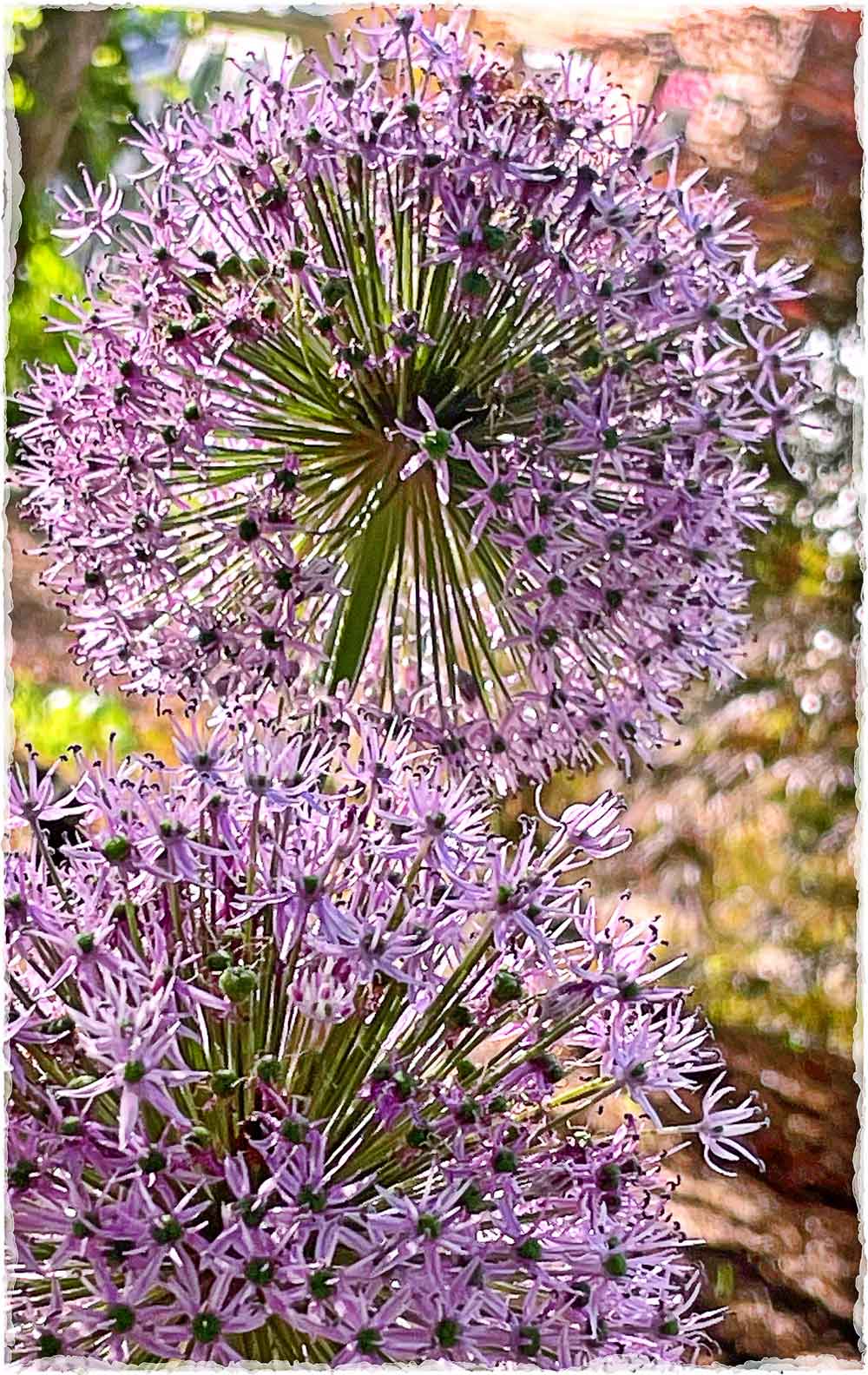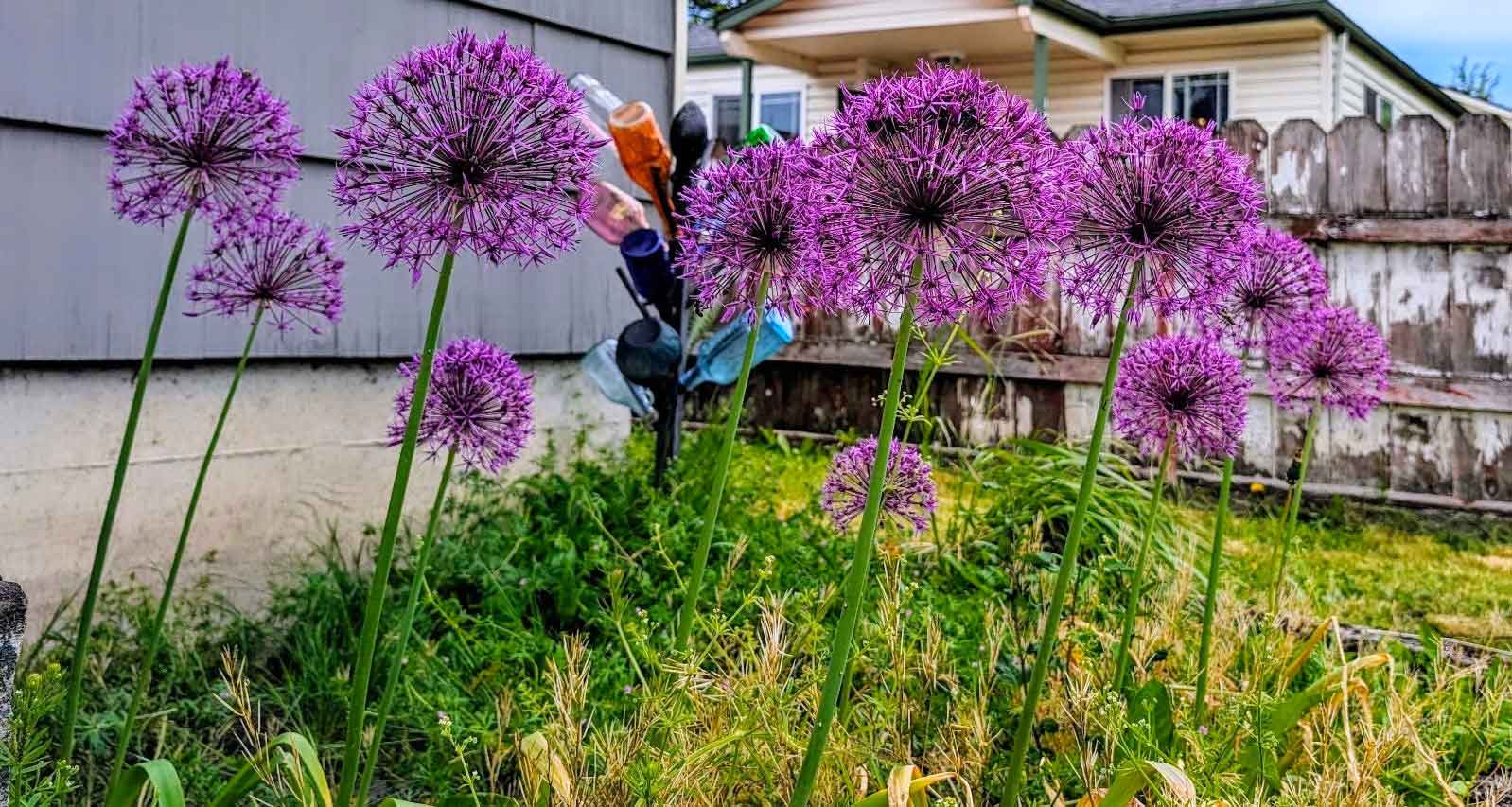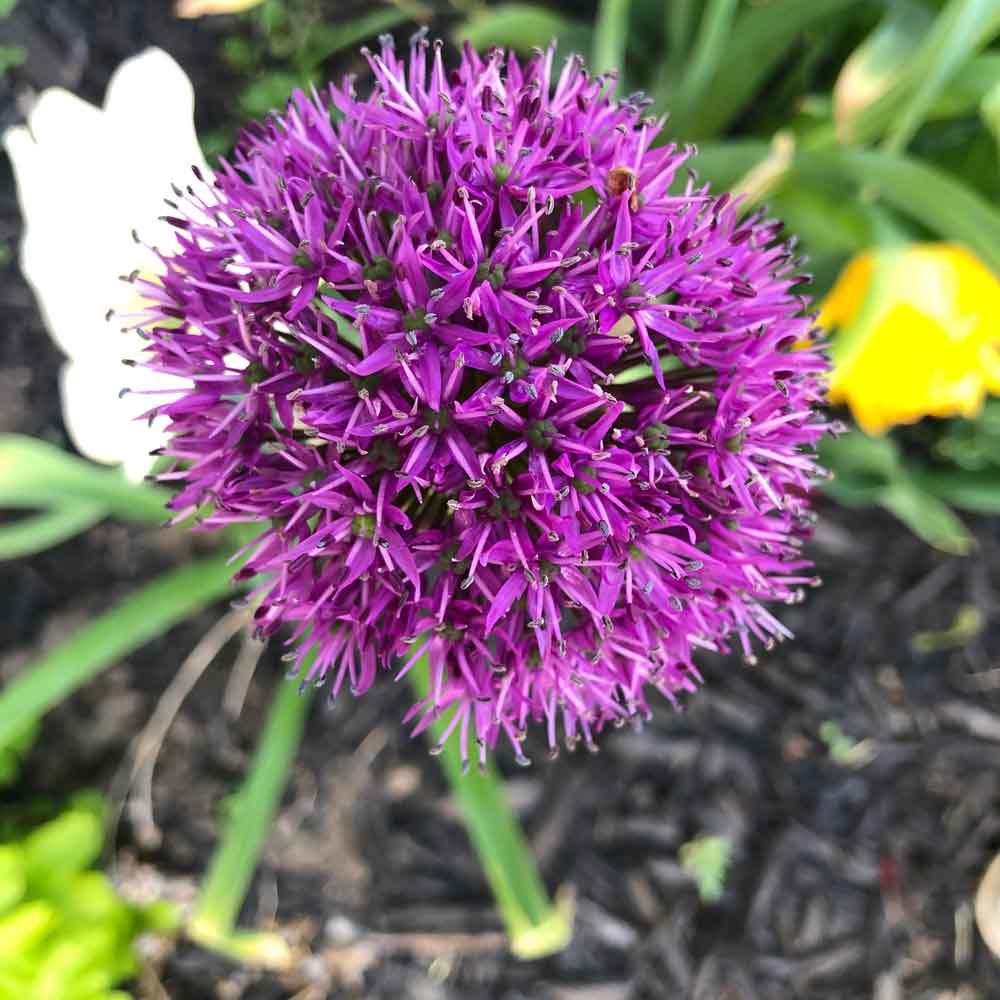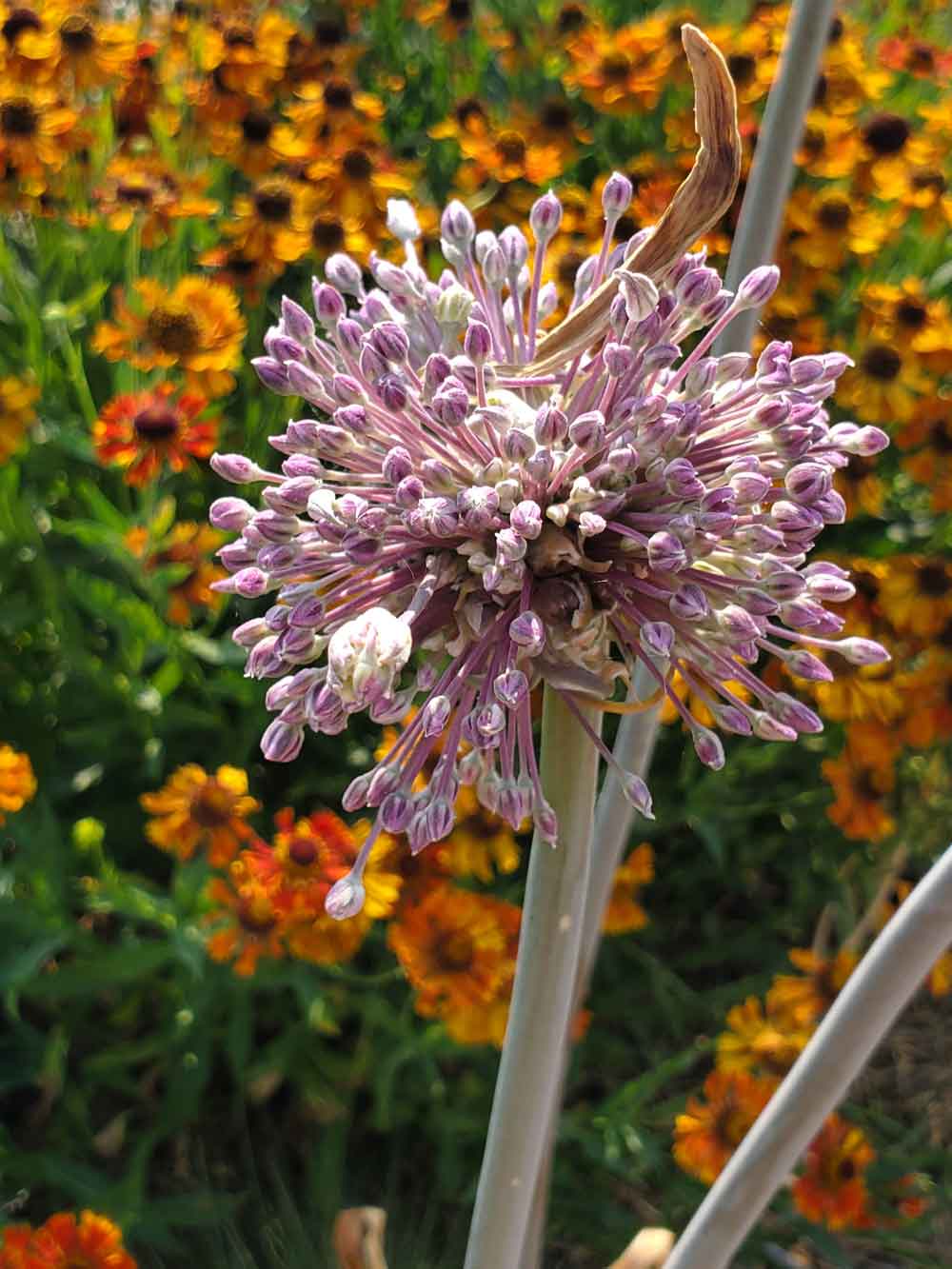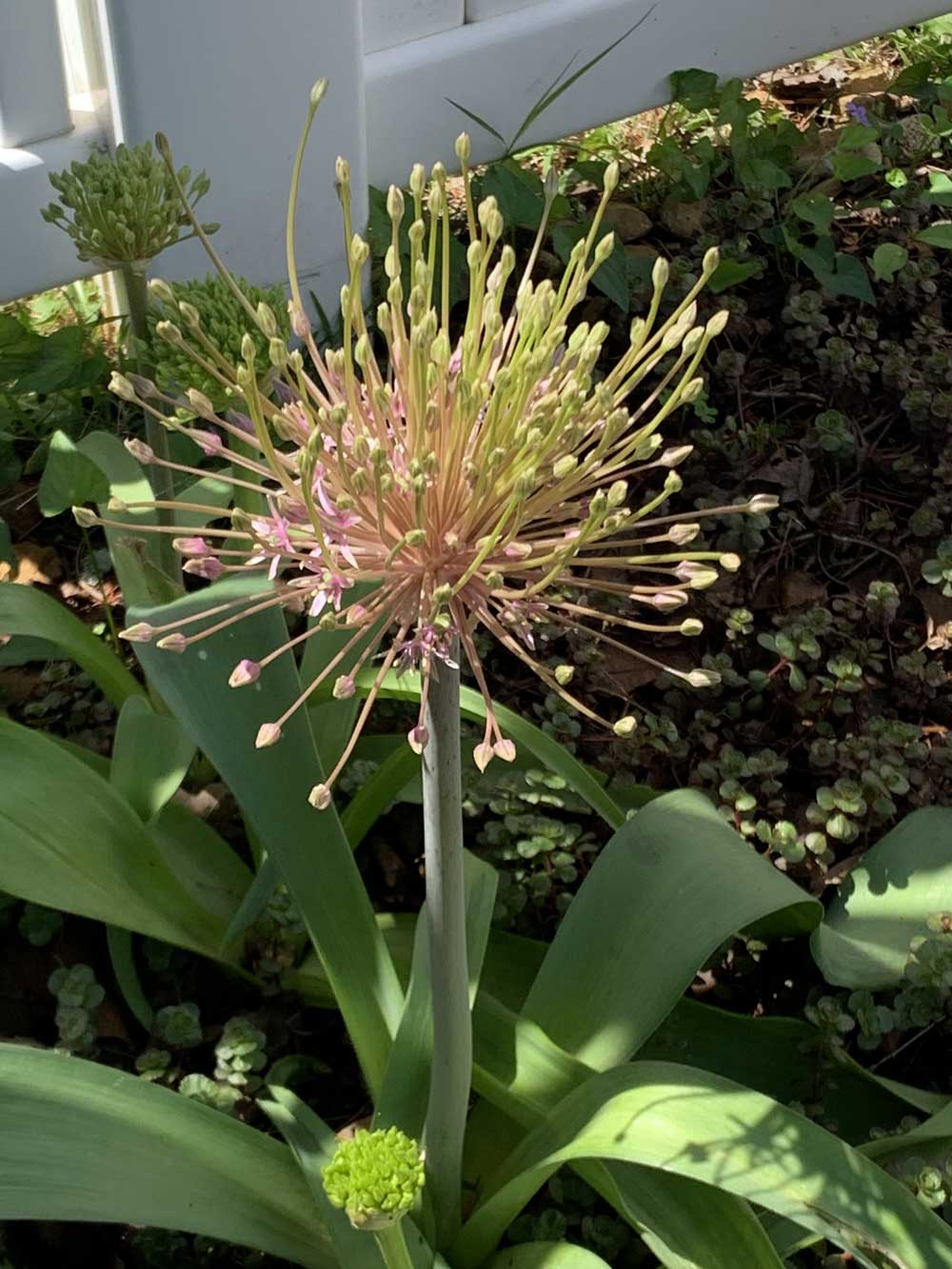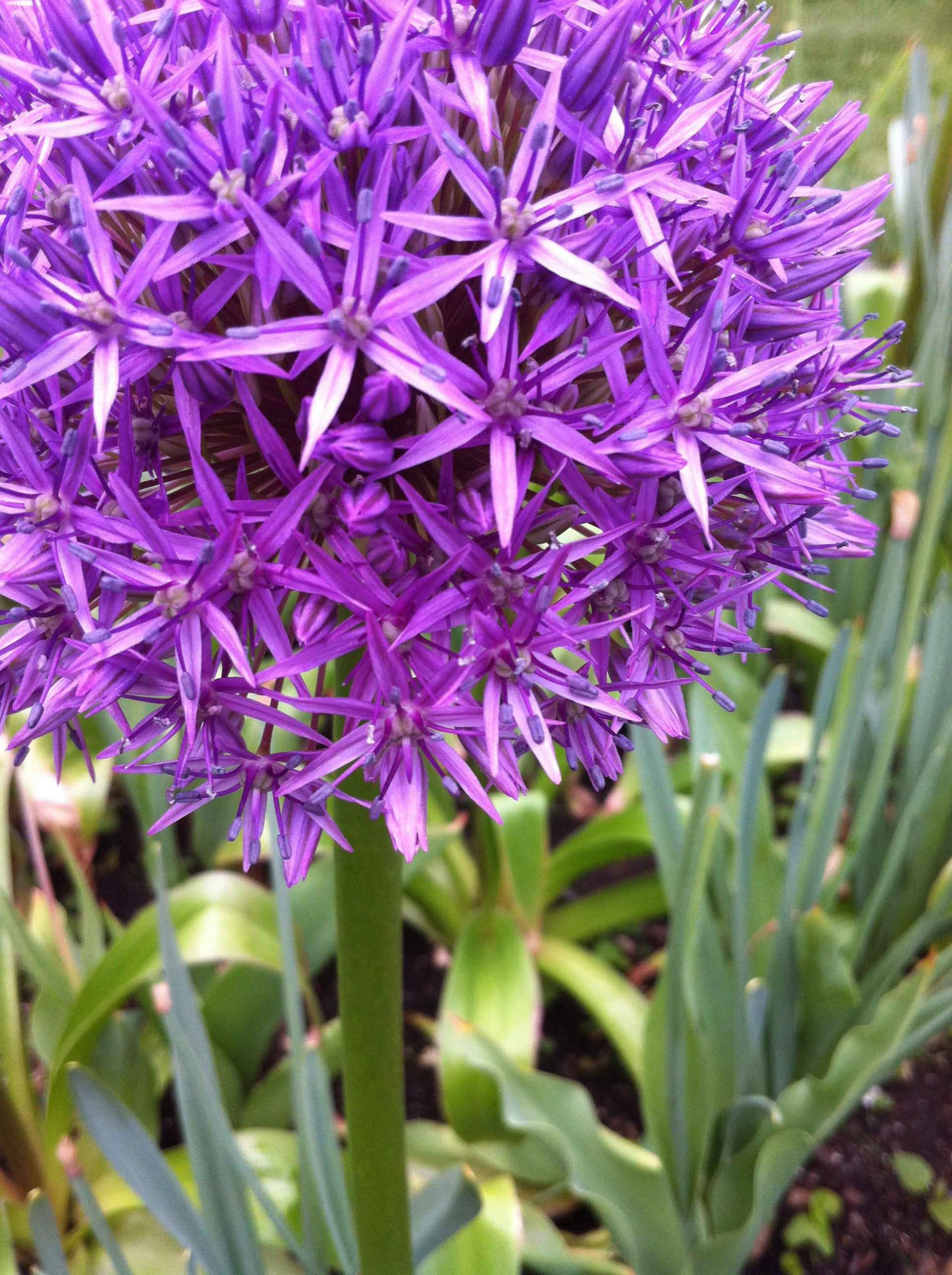About Alliums
Alliums are essentially blooming onions, no, not the ones you might find in your local chain restaurant, but rather, flowering bulbs that compliment any late spring garden. Unlike more common fall planted/spring blooming bulbs such as tulips and daffodils, the allium is a curiosity that is sure to impress and inspire for years to come. Also known as ornamental onions, Allium is ideal for making color and height combinations in the border. Most alliums flower in June, just after the real spring flowers, and before most summer flowers comes into bloom. They therefore form an indispensable perennial that keeps the border in flower well into the year.
When to Plant Allium Bulbs
Plant allium bulbs in the fall for late spring and early summer bloom.
Where to Plant Allium Bulbs
Allium bulbs are easy to plant. Like most flower bulbs, they prefer full sun, but will also thrive in partially shaded locations. Given both sun and a good drainage, they will reappear year after year. Their slim, vertical shape means that most take up very little ground space, while adding accents to a blowsy planting scheme.
How to Plant Allium Bulbs
In most cases, you will want to fertilize your allium bulb planting site with bulb food to ensure that the bulbs are properly established. For best results, we recommend planting your allium bulbs just over twice as deep as the height of the bulb and about 5 or 6 inches apart. When planting, make sure that the bulbs are planted with the pointy end up. Make sure that you water your allium bulbs sufficiently after planting. Allium bulbs are versatile and are hardy in most climates. Allium bulbs can also be planted successfully indoors.
How to Care for Alliums
Congested clumps can be lifted and divided – straight after flowering, if necessary. Dead-head before the seeds disperse if you want to avoid seedlings.

